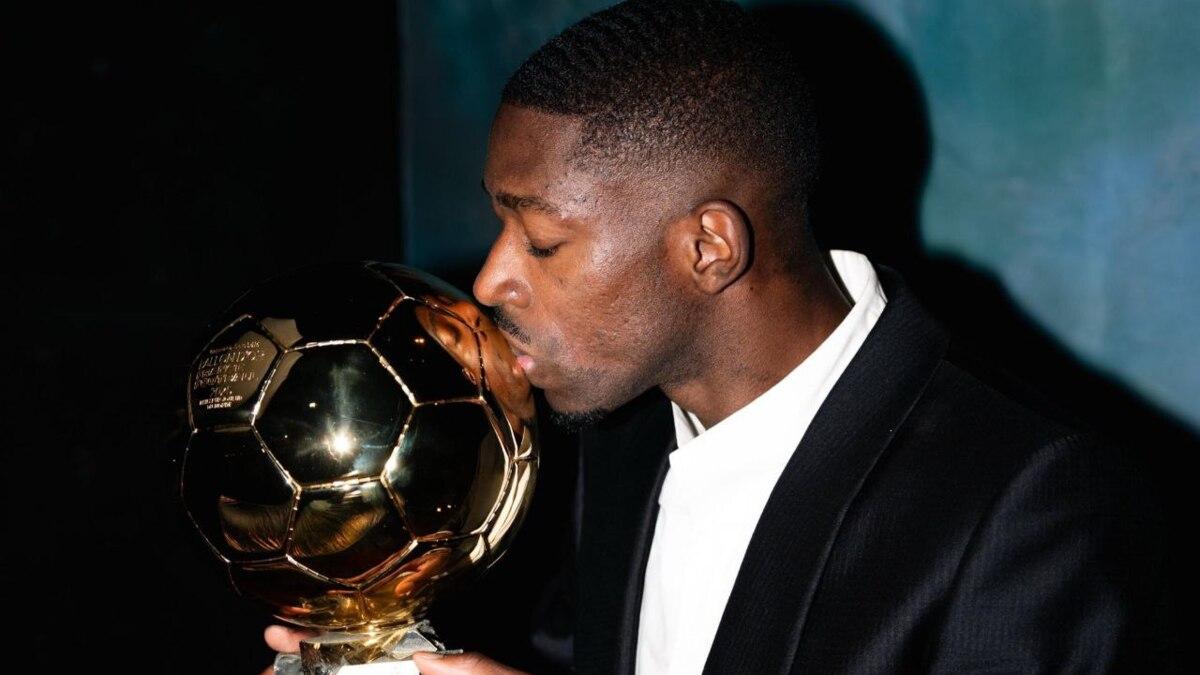Ousmane Dembélé is the 2025 Ballon d’Or winner. The Paris Saint-Germain forward took football’s biggest individual prize after a season that saw him at the centre of Paris’s domestic and European success. His victory capped a campaign in which he combined end product, consistency, and big game influence to convince voters that he was the standout player in world football for 2024–25.
This feels like a turning point for Dembélé. For years he was spoken about in the same breath as raw talent hampered by injuries. Now the narrative has shifted to sustained elite output, trophies, and leadership on the pitch. That change is the core of why voters picked him ahead of a generation of exciting young players and established stars.

Numbers tell most of the story. Across the 2024–25 campaign Dembélé posted goal contributions that put him among Europe’s most productive attackers. He finished the season with more than 30 goals and roughly mid-teens assists in all competitions, and he was decisive in Paris Saint-Germain’s run to Champions League success. Those goal contributions and match-winning moments were a major factor in the Ballon d’Or vote.
Dembélé’s impact was notable in the competitions that matter most. He was named the UEFA Champions League Player of the Season after PSG’s memorable campaign and he played a leading role in the club’s domestic success. Performances in knockout matches and finals carried extra weight with journalists and national team coaches when ballots were cast.
There are three practical improvements that explain his rise. First, his availability improved. Staying healthier allowed him to build rhythm and match sharpness. Second, his finishing and decision making in the final third became more consistent. Where previous seasons offered flashes of genius, 2024–25 featured a dependable end product. Third, his role evolved tactically. Coaches used him in positions and systems that maximised his pace, dribbling, and timing, while still asking him to contribute defensively and to the team’s pressing game.
Those changes added up. Voters reward players who influence the biggest trophies and who perform week after week. Dembélé ticked both boxes.
There were moments that crystallised his candidacy. Key goals and assists in Champions League knockout ties put him on the front pages. In the final he directly influenced the outcome with assists and an overall dominant attacking performance. Domestic league matches also showed his consistency, with match winning contributions against rivals and in tight fixtures that decided the title race. Those high leverage performances are the kind that voters remember when filling their top three.
Reactions to his Ballon d’Or win mixed heartfelt congratulations with a debate about what the award represents. Teammates and former players were quick to praise him. Messages from football figures underlined the respect he earned inside the game. At the same time some pundits and fans argued that other contenders had persuasive cases. Lamine Yamal finished second in the voting and his meteoric rise for club and country prompted discussion about youth versus experience. That conversation is healthy for football because it forces a conversation about criteria for individual awards.
When he accepted the trophy, Dembélé delivered an emotional speech that mixed gratitude and homage. He thanked his family, his clubs, coaches, and teammates. He also referenced his formative years and the people who supported him along the way. The tone was reflective rather than triumphant, and that humility struck a chord with many viewers. For a player who has been through ups and downs, the public gratitude read as authentic and grounded.
For Paris Saint-Germain the Ballon d’Or is another signal that their squad construction and investment in attacking talent have paid off. Having a Ballon d’Or winner elevates the club brand, boosts marketing and commercial value, and gives fans another reason to celebrate. For French football the award continues a recent trend of domestic stars winning global recognition. It also underscores the league’s capacity to host top level talent and to provide a platform for players to flourish on Europe’s biggest stage.
Winning the Ballon d’Or creates a new baseline expectation for Dembélé. The award will now be part of his career narrative, and the challenge is to maintain that level. Short term priorities include staying fit, delivering for PSG in the current season, and helping France in international tournaments. Long term his legacy will be judged by whether this peak becomes a sustained era of elite play or a single brilliant campaign in an otherwise uneven career.
That reality is what makes his story interesting. He has transformed perceptions. The next few seasons will determine if the Ballon d’Or was the culmination of a late career peak or the opening chapter of sustained greatness.
Ousmane Dembélé’s 2025 Ballon d’Or is a mix of statistical excellence, big match influence, and a narrative of personal growth. Voters rewarded a player who combined flair with productivity and who showed up when trophies were on the line. The award will sit in his trophy cabinet as proof that talent, when channelled and supported by the right environment, can reach the very top of the sport.


Leave a Reply